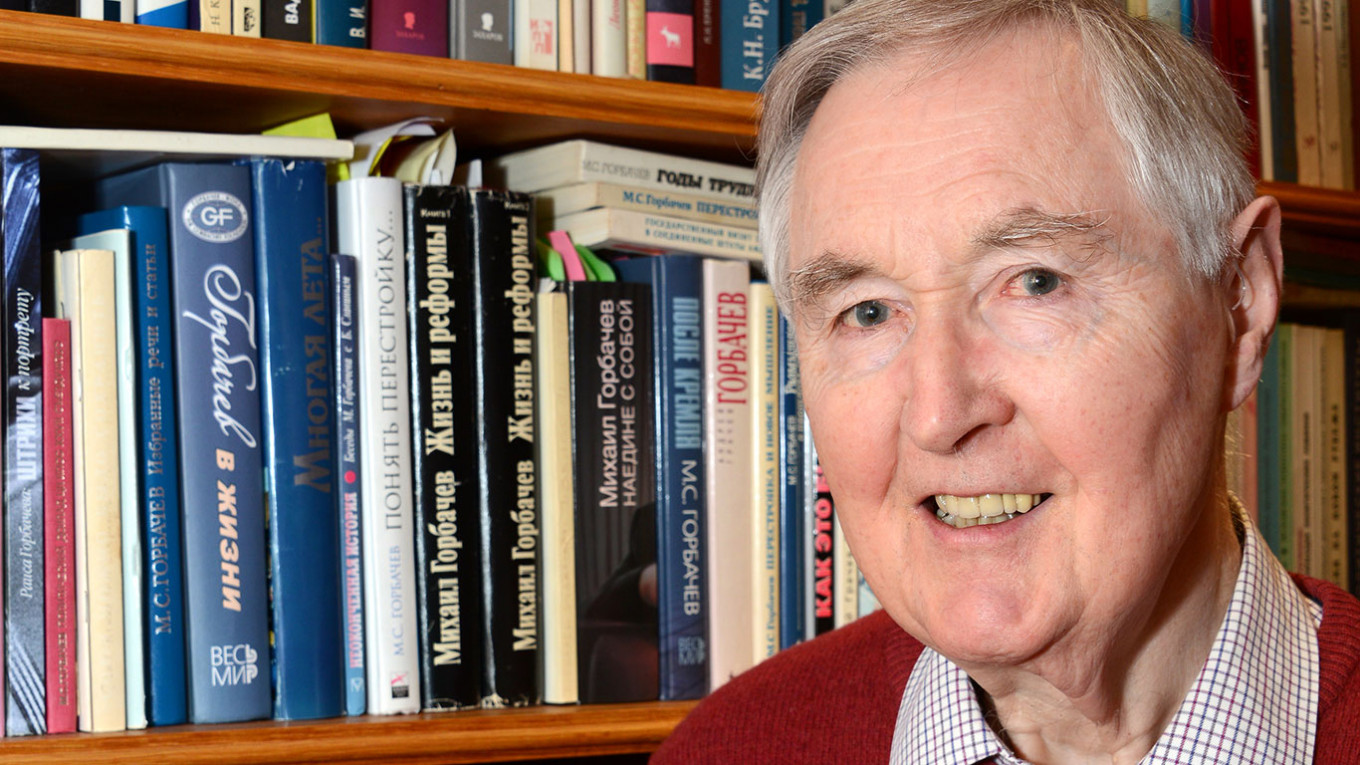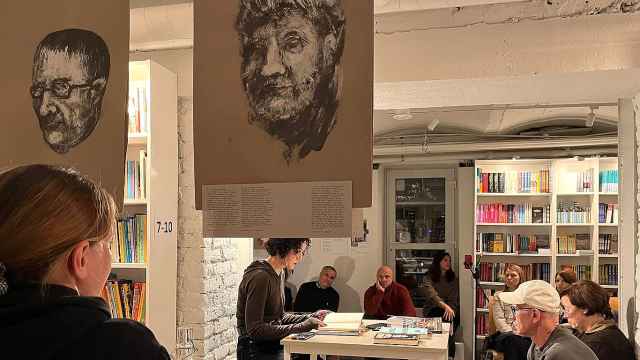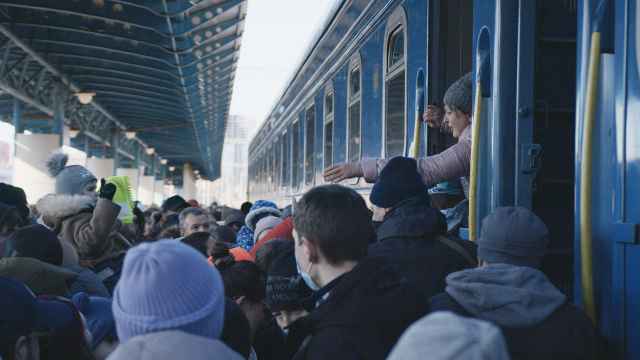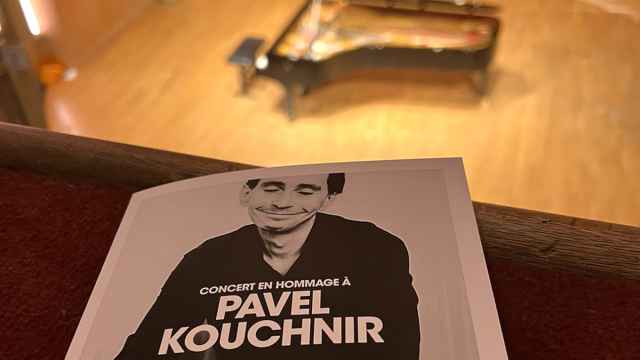How important was the true-believing communist son of Stavropol peasants, the actor son of a Midwestern travelling salesman, or the staid, provincial daughter of a Lincolnshire shopkeeper? In his newest book, “The Human Factor: Gorbachev, Reagan, and Thatcher, and the End of the Cold War,” Professor Archie Brown, who might be considered the dean of Western Soviet experts, comes out with a novel and yet nuanced argument for understanding the role of political leaders in historical processes.
Coming after his seminal books on world communism, Mikhail Gorbachev, and the nature of political leadership, Professor Brown’s latest work is an investigation of the role of individual political leaders, including Gorbachev, in the end of the Cold War and the collapse of the U.S.S.R.
And yet, if “The Human Factor” seems a natural continuation of Brown’s previous work, it is a richly researched and originally-framed contribution to a period of history that is still unaccountably poorly understood.
The title should not deceive. There is no hero worship of Reagan, Thatcher, or Gorbachev here. Brown’s central argument is not that individual Great Men (and, in this case, a Great Woman) might shape history on their own.
The idea, still popular in some circles, that Ronald Reagan’s belligerent early presidency of arms build-ups and Star Wars set the stage for the Soviet Union’s sudden lurch towards collapse in his far more collaborative second term, is rejected by Brown. He notes that the West’s military and technological superiority was far from overwhelming, and that perestroika was the fruit of Gorbachev’s socialist idealism, not the last resort of a hemmed-in, failing U.S.S.R.
Instead, Brown argues that certain exceptional leaders might be able to meaningfully influence, if not quite determine, historical processes. Margaret Thatcher’s twin fascinations with Gorbachev and Reagan led to her assuming a leading role in ending the Cold War that was greater than the role of the U.K. at the time.
The “triangular relationship” of the three late-era cold warriors provides a series of rich studies in leaders’ personality quirks, and their role for good and for ill. Reagan’s habit of believing ideologically convenient falsehoods, especially about the Soviet Union, sees him regularly steer close to offending his interlocutors.
By contrast, Thatcher’s penchant for convening councils of outside experts on topics about which she was under informed, was, argues Brown, a factor in her move towards a policy of outreach to the Soviet Union, of which she had previously been skeptical.
Professor Brown’s own role in those councils — he himself was one of the Soviet specialists summoned to a prime ministerial briefing on the U.S.S.R. in 1983, where he and other academics made the case for reaching out to the Soviets — is perhaps more than mere historical curiosity.
With the book full of rich portraits of the aides, advisers and ministers who shaped the Big Three’s decision making, this is a book unusually sensitive to the role of second-rank players in history. The vignettes on figures from perestroika godfather Alexander Yakovlev to historian-turned-Thatcher-adviser Hugh Thomas illustrate in vivid detail a human factor that stretches far beyond individual leaders, and shapes a rich and deeply human understanding of how history is actually made.
“The Human Factor: “The Human Factor: Gorbachev, Reagan, and Thatcher, and the End of the Cold War”
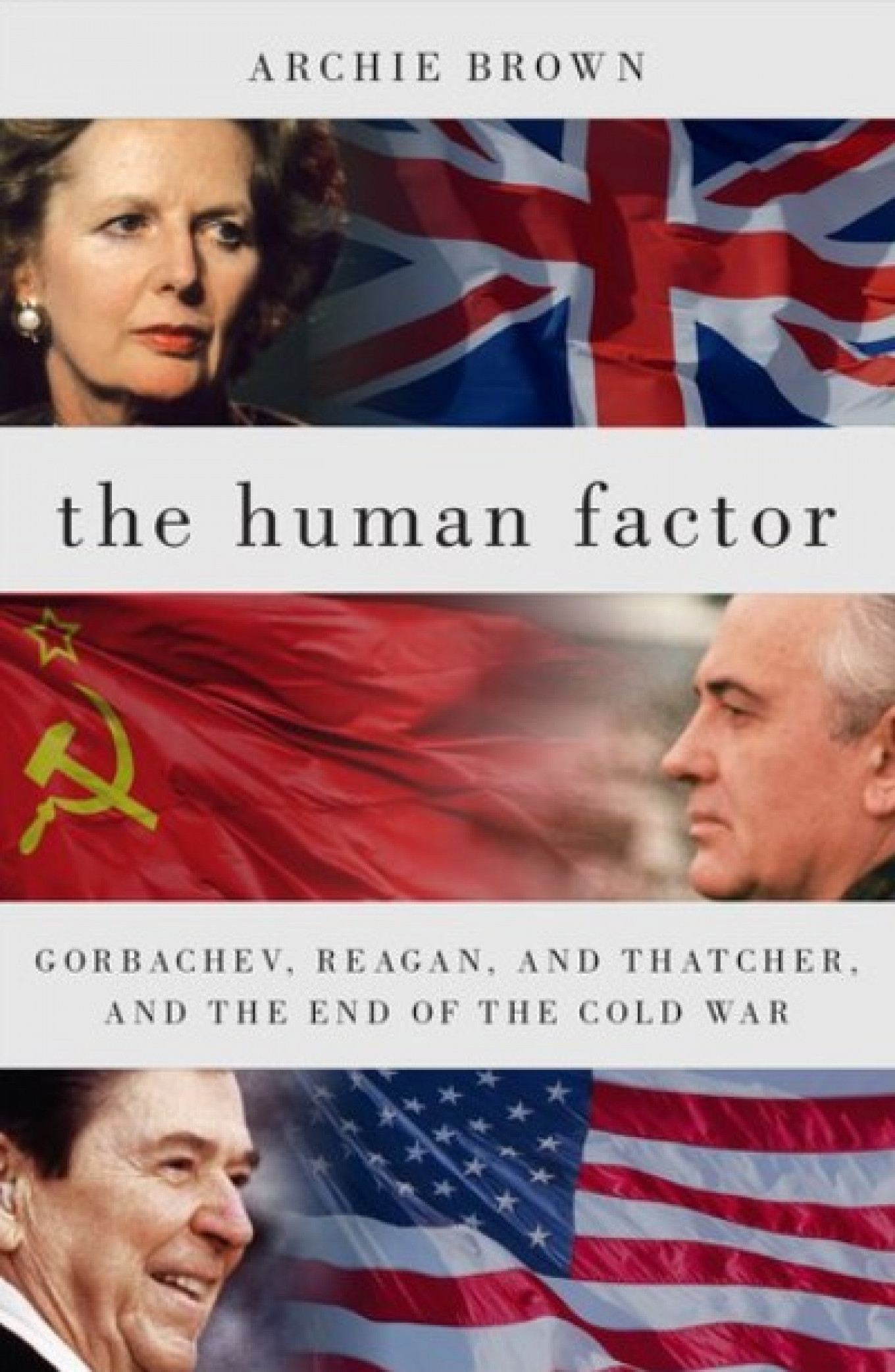
Excerpt from Chapter 16 Achievements and Failures
Ending the Cold War was in the long-term interest of Russians, as well as of the people of other countries, for the vast resources spent on the means of mass destruction could have been used more productively to raise living and environmental standards, while avoiding the real risk in times of high tension of stumbling into nuclear war through human error, technical malfunction or political miscalculation. That is not to say that continuation of the Cold War was contrary to the immediate interests of the Soviet leadership. There was a reason no Soviet leaders before Mikhail Gorbachev took the kind of steps that were needed to end it. If their primary aim was to sustain their power and authority within the USSR, and in relation to their subordinate allies in Eastern Europe – and that seems a fair summary of the top priorities of the Brezhnev leadership – then the Cold War, albeit one mitigated by the establishment of some rules of the game, had a lot to be said for it.
Gorbachev, however, regarded the state of international relations he inherited as extremely dangerous and from the outset of his leadership he wished to embark on the process of ending the Cold War. No doubt, he underestimated the risks this would entail for Soviet stability and, eventually, for his own authority, although for the first several years of his party leadership, removal of the threat of war enhanced his authority at home as well as abroad. But even after his domestic popularity was in steep decline, he remained committed to maintaining the relations of trust and co-operation he had established with Western leaders, just as he did not reverse the pluralization of Soviet politics which had produced unintended as well as intended consequences.
For many in Russia today, and for some in the West, Gorbachev is seen as a failure – guilty, above all, for the disintegration of the Soviet Union. At the end of the period of less than seven years in which he occupied the highest post in Soviet politics, the state over which he presided became fifteen separate countries; the economy was still performing dismally; and the United States was emerging from the Cold War as (for the time being) the one superpower. Yet, during the first five years of perestroika, Gorbachev was the most popular politician in both Russia and in the USSR as a whole (as we know from the most professional survey research at that time). The new freedoms were widely welcomed by Russians as well as by the titular national groups in those other republics who sought greater autonomy or, in some (although far from all) cases, separate statehood.
In the last two years of the USSR’s existence, the problems facing Gorbachev and the Soviet leadership mounted exponentially and his popularity correspondingly declined. But do the failures outweigh what he accomplished? It is worth summarizing twelve remarkable achievements which owed more to Gorbachev than to anyone else in the Soviet Union (and far more to him than to any foreign leader) which were appreciated at the time, even if increasingly forgotten, not least in Russia, thereafter:
First, the introduction of glasnost and its development into freedom of speech and publication;
second, the release of dissidents from prison and exile and the resumption of rehabilitations of those unjustly repressed in the past;
third, freedom of religious observation and the ending of persecution of the churches;
fourth, freedom of communication across frontiers, including an end to the jamming of foreign broadcasts and a developing freedom to travel or to emigrate;
fifth, the introduction of genuinely competitive elections for new federal and republican legislatures endowed with real powers;
sixth, the development of civil society which was a result of perestroika and not (as some have imagined) a precursor of it;
seventh, progress towards a rule of law, with the Communist Party no longer above the law and supreme power moving from party to state institutions;
eighth, the replacement of Lenin and dogma with a commitment to pluralism and free intellectual inquiry;
ninth, the ending of Soviet military intervention in Afghanistan and the withdrawal of the last Soviet troops from that country by February 1989;
tenth, granting the right of the East European countries to become independent and non-Communist – a decisively important component of the end of the Cold War;
eleventh, consent to, and negotiation of, the peaceful reunification of Germany;
twelfth, and underpinning the last three foreign policy decisions: a fundamental reappraisal of world politics in which East-West relations were no longer seen as a zero-sum game but as one in which both sides could win.
That last point was linked to Gorbachev’s acceptance of democratic norms and values, with the principles of democracy understood in the same way as in long-established Western democratic states, and his embrace of universal interests – what was in the interest of all humanity rather than of any one class, group or nation. All that amounted to a demolition of the ideological foundations of the Cold War, leaving zealots and irreconcilables on both sides of the old divide deprived of a role.
For citizens of Western democracies, the political transformation of a state which had hitherto been, but had now ceased to be, a political, ideological and military adversary was more important than one state becoming fifteen. But the breakup of the Soviet Union became a clear blessing for only some of the newly-independent republics – the Baltic states, in the first instance. For several of the others, it has meant descent into a form of rule more authoritarian than that of the last years of the Soviet era when there was backing for political pluralism throughout the USSR from the highest political echelons in Moscow.
Disintegration of the Soviet state has led to territorial disputes and inter-ethnic tensions, some of which have resulted in violent conflict. Gorbachev’s projected voluntary federation envisaged in the Union Treaty was designed to prevent the breakup of the Soviet state and to do so without resort to violent coercion. From one side, Yeltsin and his associates and, from another, the putschists played the major part in ensuring that the Union Treaty was ultimately aborted. Yet, the existence of the talks had themselves played a part in keeping the dissolution of the Soviet state in 1991 largely peaceful – remarkably so if it is compared with the deadly conflicts which accompanied the breakup of Yugoslavia.
In post-Soviet Russia, perhaps not surprisingly since it had been the dominant republic in the Union, a majority of citizens still regret the breakup of the USSR. For a significant minority of Russians, however, the gains in freedom and democracy of the perestroika years counted for more than the disappearance of the Soviet state. Whether, after all, people live in a free society and under government accountable to the public in free elections or, on the contrary, under dictatorial rule, with its accompanying censorship and self-censorship, makes a bigger difference to the quality of their lives than the size of the country. And it is not as if Russia has been left small and unviable. Even minus the fourteen other Soviet republics, it remains the world’s largest state, and one rich in natural resources.
By no means all of the dozen achievements of the perestroika era I’ve outlined have been preserved in post-Soviet Russia. But at the time they made a major contribution to ending a Cold War which was becoming increasingly anachronistic, given the extent to which the Soviet Union had been liberalized by 1989 and the progress it was making in democratization. Gorbachev bequeathed to his successors a Russia that was freer than at any time in its previous history as well as relations of trust between Moscow, on the one hand, and Washington and West European capitals, on the other. Writing in 1989, one of the most knowledgeable of European politicians on foreign and defence policy, Denis Healey, conveyed the optimism of the time in a highly positive assessment of the scale of Gorbachev’s accomplishment and goals. In the light of what he called the ‘appalling relations between Washington and Moscow during Reagan’s first term’, this former long-serving UK defence secretary wrote that ‘Gorbachev’s achievement was stupendous’. He had gone ‘far beyond simply ending the Cold War’ and had even raised the prospect of ‘the sort of cooperation between the world’s governments which the United Nations had been set up to achieve’. Gorbachev had shown ‘extraordinary sensitivity’ to the personalities of Reagan and Thatcher who had learned to trust him to a degree ‘inconceivable in the light of their earlier rhetoric’.
Healey was writing at the high point of Gorbachev’s leadership. Up until then, while Western politicians’ readiness to engage with the Soviet Union was very important, it was the Gorbachev-led breakthrough in Moscow, both in domestic and foreign policy, that was the main driver of international change. From the second half of 1989, when events moved faster in Eastern Europe than Gorbachev (or, for that matter, Western leaders) had expected, and especially in 1990-91 when separatist movements and growing economic difficulties undermined his authority, Gorbachev was a leader reacting to events rather than setting the agenda, although how he reacted still mattered greatly.
Excerpted from “The Human Factor: Gorbachev, Reagan, and Thatcher, and the End of the Cold War” by Archie Brown, published by Oxford University Press, New York and Oxford. © Archie Brown 2020. Used by permission. All rights reserved. Footnotes have been removed to ease reading. For more information about Archie Brown and his book, see his publisher’s sites here and here or in bookstores in the U.S. or U.K.
“The Human Factor” has been shortlisted for the 2021 Pushkin House Book Prize.
A Message from The Moscow Times:
Dear readers,
We are facing unprecedented challenges. Russia's Prosecutor General's Office has designated The Moscow Times as an "undesirable" organization, criminalizing our work and putting our staff at risk of prosecution. This follows our earlier unjust labeling as a "foreign agent."
These actions are direct attempts to silence independent journalism in Russia. The authorities claim our work "discredits the decisions of the Russian leadership." We see things differently: we strive to provide accurate, unbiased reporting on Russia.
We, the journalists of The Moscow Times, refuse to be silenced. But to continue our work, we need your help.
Your support, no matter how small, makes a world of difference. If you can, please support us monthly starting from just $2. It's quick to set up, and every contribution makes a significant impact.
By supporting The Moscow Times, you're defending open, independent journalism in the face of repression. Thank you for standing with us.
Remind me later.



